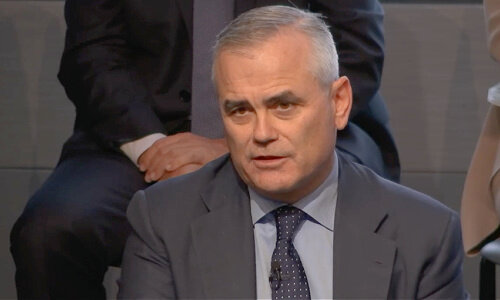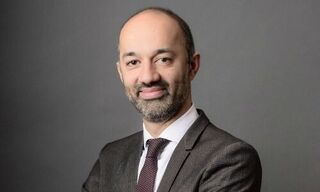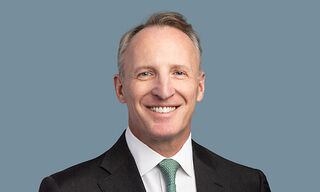The Swiss bank’s reveal of new strategy without clarity on who will push it through prolongs a period of uncertainty – including for CEO Thomas Gottstein.
Under Chairman António Horta-Osório (pictured below), Credit Suisse's new-(old) strategy tightens the reins around its Paradeplatz headquarters – an effect of an often too-free-wheeling culture that repeatedly ran afoul of risk concerns.
The Zurich-based lender has pushed back decision-making on who will run those key units – wealth management, Switzerland, asset management, and investment banking – for another two months. The move heightens uncertainty for 49,950 of its employees, who have been asking themselves «what’s next» nearly as fervently as investors.

It also fails to quell speculation over the future of Thomas Gottstein (pictured below) as CEO, who was confident, present, and authoritative on Thursday in front of investors. Neither he nor Horta-Osório made much mention of the curious state of drafting a new organization without naming their respective heads.
Board Not Convinced?
It is the most acute at Credit Suisse's newly-united private bank, where finews.com as well as «Bloomberg» reported on Monday that Credit Suisse's former top man in Asia, Francesco De Ferrari, is due to take over. Gottstein has a major say in the wealth management appointment, and backs De Ferrari for the role whole-heartedly, according to two people familiar with the matter.
The lack of clarity on the appointment may mean De Ferrari couldn't quite persuade Credit Suisse's board, which is also settling into a new formation. It also puts on hold changes in the wider organization – not a good look for a dynamic and trusted adviser to the wealthy.
And amid a boom in mergers and acquisitions, the bank fell to 11th place in Refinitiv’s third-quarter league tables, from eighth place year-ago.

At least until year-end, though likely longer, the bank will be racked with uncertainty bordering on paralysis. Without heads of divisions, there is little clarity on «matrix» leadership along the lines of Switzerland; Europe, Middle East, and Africa; Asia-Pacific; and Americas as well as key deputies in both versions of the matrix.
Phases Of Uncertainty
The uncertainty will inevitably spill into year-end planning for 2022 goals, demotivate staff, absorb headspace, and lead to market chatter. And perhaps trickiest: UBS is quietly intensifying hiring efforts to see if it can exploit Credit Suisse's vulnerability, a person familiar with the matter told finews.com.
There's heaps of irony that a very different Thomas Gottstein – likely with his investment banker's thinking cap on – emphasized to finews.com last year that phases of major uncertainty are delicate for firms because it renders them static for a time, during which competitors can more easily poach valuable talent. At Credit Suisse, he is currently confronted with exactly this.
Reporting by Claude Baumann and Katharina Bart



























